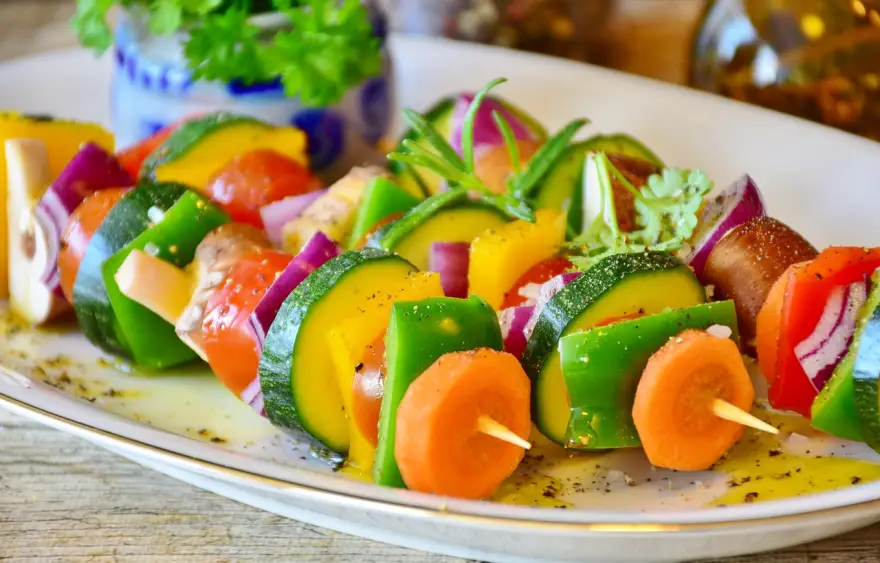More Sustainable Food Options Are Becoming More Common at Events – At Provinssi, the Biggest Change Was in Demand

Food choices have a significant impact on the sustainability of events.
One-third of global climate emissions are linked to food and its production, and nearly 60% of those emissions come from meat production. A responsible event organizer cannot ignore the suffering caused to animals in industrial livestock farming. Offering more sustainable food at temporary catering events, openings, or festival food stalls is a simple and effective way to reduce environmental harm.
Sustainable food options have become more common in recent years. In February 2024, it was announced that the Provinssi festival would begin offering discounts to food vendors who do not serve red meat or whose menus are entirely plant-based or vegan. At Provinssi, the fee for a food sales spot is 22% of turnover; using more sustainable ingredients reduces that fee by 1–3 percentage points. Despite some exaggerated headlines and social media drama, the online buzz had no negative effect on the event itself. In fact, Provinssi reached an all-time attendance record in summer 2024 with over 85,000 visitors.
“A lot of those commenting online had never attended Provinssi, or hadn’t in a long time. The fact that we care about climate issues clearly attracts new visitors—though the biggest draw is still the program,” says festival director Ville Koivisto.
The pricing policy was designed to encourage vendors to explore alternatives and switch to more sustainable ingredients. The change and publicity attracted some new vendors, and the food selection at Provinssi became more diverse. In previous years, audiences had asked for more vegetarian and vegan options.
“We scored better in our audience survey on food variety. Demand is increasing, and it’s important to offer options. There have always been plenty of choices for meat-eaters—and still are,” Koivisto notes.
The most significant shift, however, was not in supply but in demand. At Provinssi 2024, the proportion of beef sold dropped noticeably compared to the previous year, while sales of chicken and vegan dishes increased. Around 60,000 hot meals were sold, with an estimated total carbon footprint of 140,000 kg CO₂. The average meal had a footprint of 2.33 kg CO₂—nearly 0.6 kg less than in 2023. This shift resulted in approximately 36,000 kg CO₂ fewer emissions from food sales.
“I believe that festivals play a significant role if we can introduce people to foods they would not normally try and if they continue to eat them, even occasionally. The fact that omnivores are choosing vegetarian dishes more often has a significant multiplier effect, Koivisto reflects.
World Village Festival Made a Smooth Transition to Plant-Based Food
In summer 2024, the World Village Festival in Suvilahti, Helsinki, moved to a fully plant-based food policy, banning the sale of dishes containing meat, poultry, or seafood. Preference was also given to vendors offering vegan, organic, and local food. Additionally, all vendors committed to replacing conventional ingredients with Fair Trade alternatives.
“We had been considering the vegetarian-only policy for several years, and the previous summer, we received a lot of feedback asking why we still served meat if we claim to be a sustainability festival,” explains communications manager Nelli Korpi.
The announcement drew attention: media coverage was positive, and social media included both praise and some criticism—none of which affected the event. Some food vendors were initially hesitant, but most welcomed the change.
“Communication and support were essential. We emphasized that we would stick to the policy. Vendors received an info pack as well as free training on hygiene and plant-based cooking. These trainings have been popular and well-received,” says Korpi.
In summer 2024, the number and variety of food vendors remained steady compared to previous years. The event hosted 46 food vendors, a quarter of whom offered exclusively vegan meals. The festival’s 45,000 visitors enjoyed dishes from Tibetan, Senegalese, Vietnamese, Spanish, and Finnish cuisines. Audience feedback was enthusiastic: 87% said they were highly or very interested in the plant-based offerings, and the same percentage reported plans to try global flavors at the event.
More sustainable food choices are becoming mainstream at festivals. Flow and Sideways stopped offering meat and poultry in 2022. Vendors offering vegetarian and vegan food receive discounted stall fees at Ilosaarirock, Weekend, and Ruisrock, which quietly adopted the policy back in 2019. More and more festivals—such as Tuska, Provinssi, Flow, and World Village—now require all food vendors to offer at least one vegan option.
Author: Saana Katila